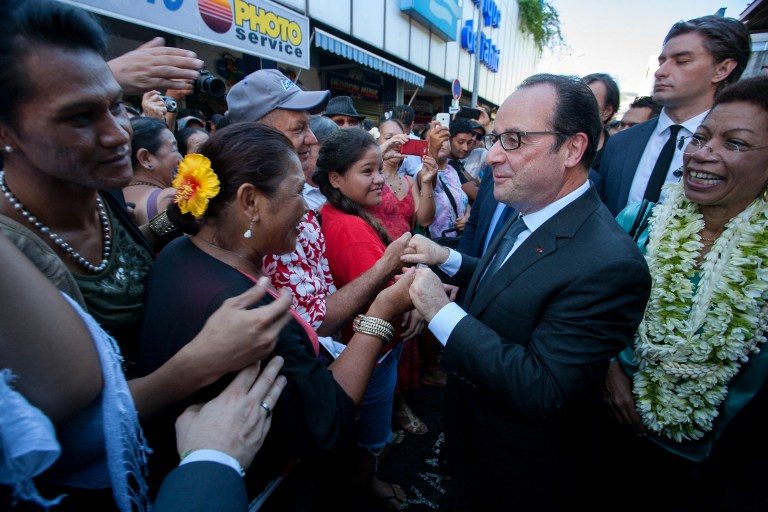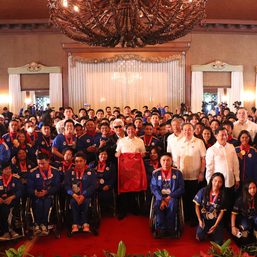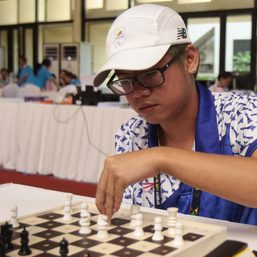SUMMARY
This is AI generated summarization, which may have errors. For context, always refer to the full article.

PAPEETE, French Polynesia, France (UPDATED) – French President Francois Hollande on Monday, February 22, acknowledged that 3 decades of nuclear tests in French Polynesia had had “an impact” on health and the environment and promised to revamp the compensation process.
Hollande‘s remarks, made on a visit to the French Polynesian capital, are the clearest admission yet of the damage caused by the French testing program.
“I recognize that the nuclear tests between 1966 and 1996 in French Polynesia have had an environmental impact, causing health consequences,” Hollande said in Papeete during a tour of the Pacific.
France carried out the 193 nuclear tests on the atolls of Mururoa and Fangataufa until then-president Jacques Chirac called a halt to the program in the 1990s.
For decades, it denied its responsibility for fear the admission would weaken its nuclear program during the Cold War.
Only around 20 people have received compensation for the spread of cancers allegedly linked to the tests from among some 1,000 plaintiffs, and Hollande said the process would now be reconsidered.
“The processing of applications for compensation for victims of nuclear tests will be reviewed,” he said.
Hollande said he wanted to “turn the page” after the 3 decades of nuclear tests in the area.
The president also said France would provide financial assistance to the oncology department of Tahiti’s hospital, in line with demands from local politicians.
From next year, France will pay more than 90 million euros ($99 million) a year to assist the facilities.
“The environmental consequences of the tests must also be dealt with,” Hollande said.
He pledged France’s assistance in dismantling the facilities used in the tests and Hollande said the sites on Mururoa and Fangataufa “will be the subject of meticulous care.”
It was above Fangataufa that France launched its first H-bomb in August 1968.
Hollande paid tribute to the contribution made by French Polynesia, saying that without the tests there “France would not have nuclear weapons and therefore would not have a nuclear deterrent.”
Some 150,000 civilian and military personnel took part in 210 nuclear tests carried out between 1960 and 1996 by France in the Pacific and the Sahara desert. Many of them later developed serious health problems.
It was only in 2010 that France passed a law authorizing compensation for military veterans and civilians whose cancer could be attributed to the test program.
French Polynesia, with a population of about 280,000, is one of 3 French territories in the Pacific. – Hervé Asquin, AFP / Rappler.com
Add a comment
How does this make you feel?





There are no comments yet. Add your comment to start the conversation.